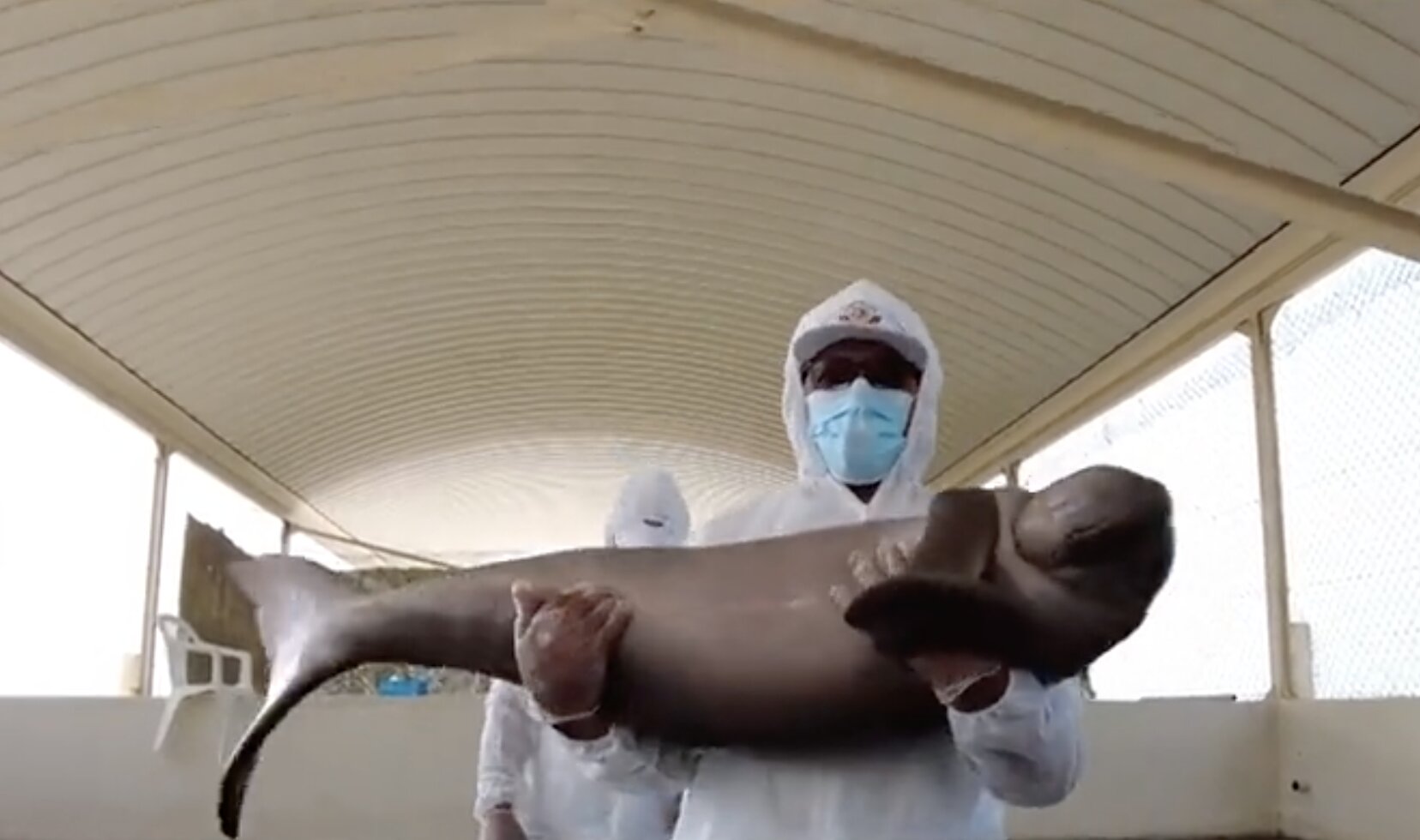Qatar waters have the world’s second-largest dugong population.
Baby dugongs found stranded at Khor Al Udeid beach earlier this month have been released back into Qatari waters after receiving the needed care, environment authorities have announced.
The nation’s Ministry of Environment and Climate Change released the small sea animals after providing them with the necessary care to ensure they can be independent once they go back into the waters.
They were then taken back to an area in the sea where dugongs are most prevalent.
Qatar’s waters are home to one of the largest herds of dugongs, with numbers of the shy and lovable marine mammal reaching over 840, marking the largest gathering of these aquatic animals in Qatar in three decades.
The ministry has been committed to protecting dugongs and has frequently visited areas where they are found to conduct research on the animals.
Up until the baby dugongs were released into their natural habitats, the ministry has been careful to adhere to safety and security protocols. This included having outfitted tanks, and a 24-hour monitoring schedule by experts until they bid farewell.
During their care period, the ministry’s aquatic nutritionists provided the young dugongs with suitable food and medical attention to assure their safety. They were also kept in a well-equipped and qualified pond, and experts fed them seaweed to ensure they are used to eating it before being released back to the sea.
The Gulf nation’s dugong population is believed to have made its first appearance in the Arabian Gulf around 7,500 years ago. However, the aquatic mammal species, the Sirenia family, dates back almost 60 million years.
The aquatic animals are an important player in maintaining aquatic ecosystems, as they contribute to maintaining healthy seagrass meadows, which are essential for fish and crustaceans nurseries
For that reason, authorities are calling on all beachgoers and scuba divers to help safeguard dugongs and not impose any harm on them.







